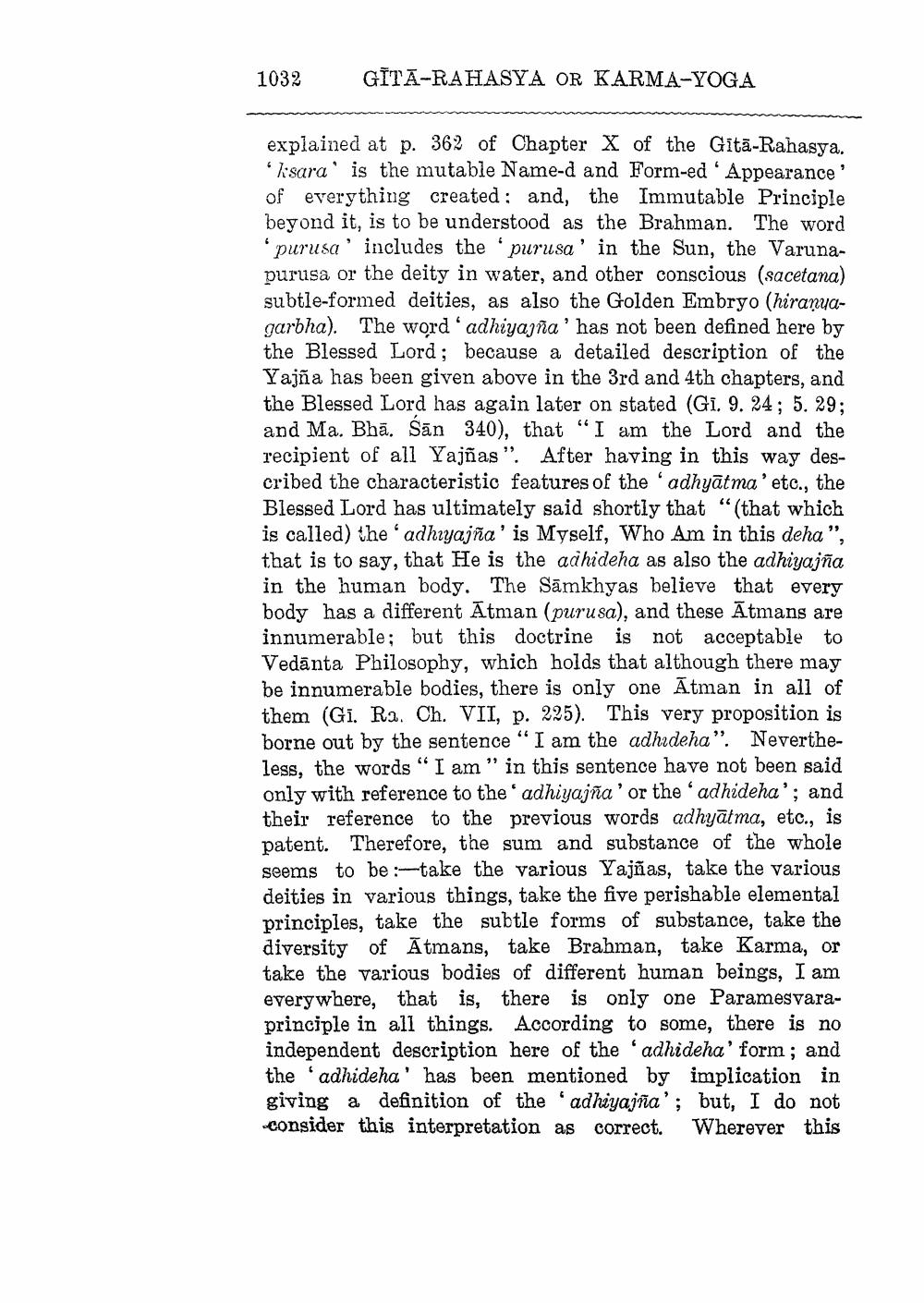________________
1032
GĪTĀ-RAHASYA OR KARMA-YOGA
explained at p. 362 of Chapter X of the Gitā-Rahasya. 'ksara' is the mutable Name-d and Form-ed 'Appearance' of everything created: and, the Immutable Principle beyond it, is to be understood as the Brahman. The word
purusa' includes the purusa' in the Sun, the Varunapurusa or the deity in water, and other conscious (sacetana) subtle-formed deities, as also the Golden Embryo (hiranyagarbha). The word ' adhiyajña' has not been defined here by the Blessed Lord; because a detailed description of the Yajña has been given above in the 3rd and 4th chapters, and the Blessed Lord has again later on stated (G1. 9. 24; 5. 29; and Ma. Bhā. Sān 340), that “I am the Lord and the Tecipient of all Yajñas". After having in this way described the characteristic features of the 'adhyātma'etc., the Blessed Lord has ultimately said shortly that "(that which is called) the 'adhyajña' is Myself, Who Am in this deha", that is to say, that He is the adhideha as also the adhiyajña in the human body. The Sāmkhyas believe that every body has a different Atman (purusa), and these Ātmans are innumerable; but this doctrine is not acceptable to Vedānta Philosophy, which holds that although there may be innumerable bodies, there is only one Ātman in all of them (Gi. Ra. Ch. VII, p. 225). This very proposition is borne out by the sentence “I am the adhrdeha". Nevertheless, the words “ I am " in this sentence have not been said only with reference to the adhiyajña' or the 'ad hideha'; and their reference to the previous words adhyātma, etc., is patent. Therefore, the sum and substance of the whole seems to be take the various Yajñas, take the various deities in various things, take the five perishable elemental principles, take the subtle forms of substance, take the diversity of Ātmans, take Brahman, take Karma, or take the various bodies of different human beings, I am everywhere, that is, there is only one Paramesvaraprinciple in all things. According to some, there is no independent description here of the 'adhideha' form; and the 'adhideha' has been mentioned by implication in giving a definition of the 'adhiyajña'; but, I do not consider this interpretation as correct. Wherever this




